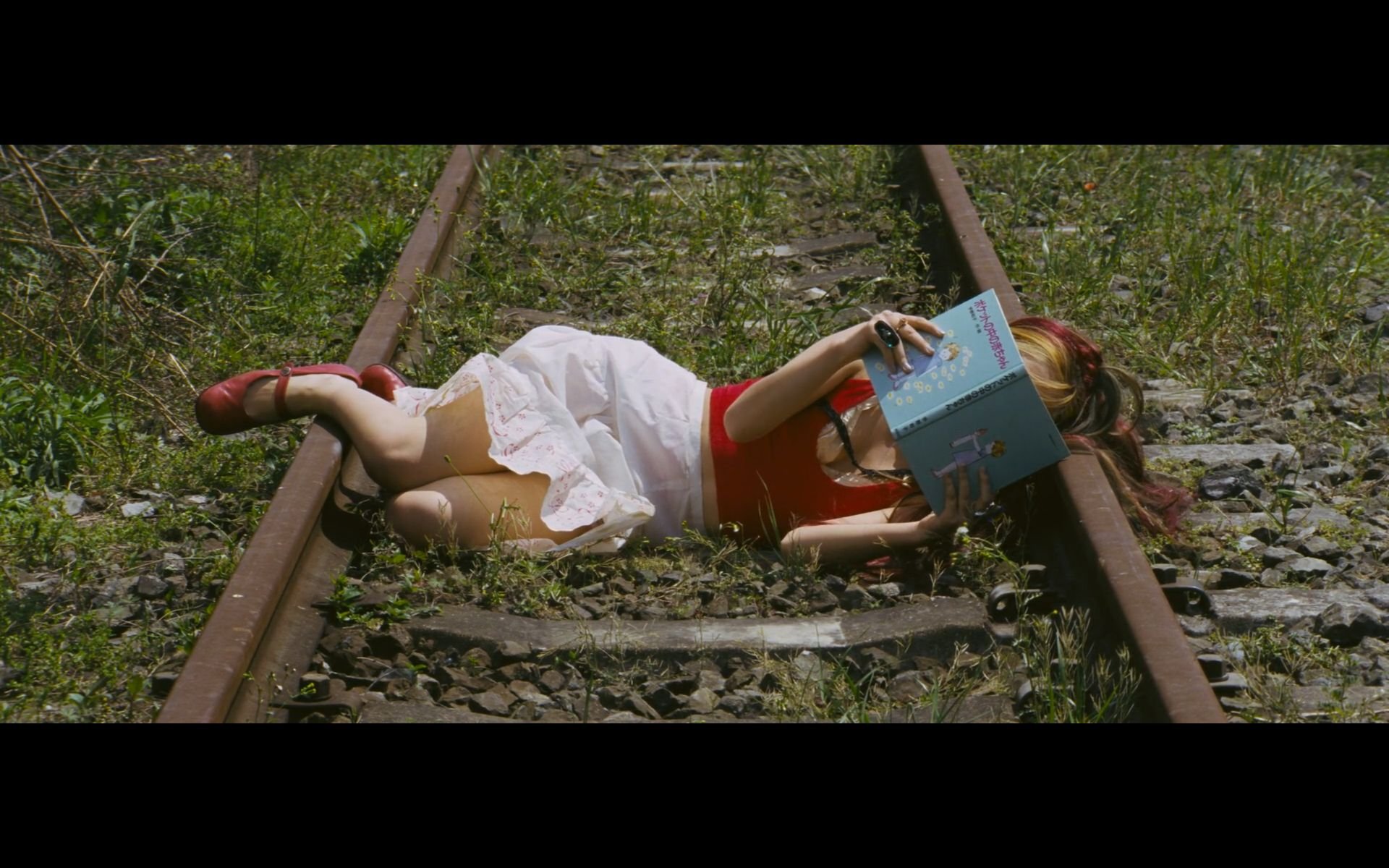Ritual (2000) Hideaki Anno
Many of you might have heard of Hideaki Anno as one of the most famous mangaka of all times, acclaimed above all for having written and drawn Neon Genesis Evangelion. Today however, I want to focus on his live-action productions, and in particular on Shiki-Jitsu, also known as Ritual.
Produced in 2000, the movie is based on the novel "Tōhimu" by Ayako Fujitani, who also plays the female protagonist in the cinematic adaptation.
Ritual is a film that captures the fragility of the human soul and the complex labyrinths of his troubled mind. Through theatrical scenarios and complex shot sequences we witness the paradoxical relationship between a girl with mental disorders who has a strange ritual of repeating “Tomorrow is my birthday” everyday - and a video maker in crisis of inspiration who, after meeting her by chance lying on the train tracks, immediately attracted by the girl’s eccentric look and her abnormal attitude, begins to follow her and starts filming her days indulging her oddness and using the video camera as a means of communication between the two.
The girl, whose name is never revealed and who’s simply called "She", seems to live in a glass bubble; in a limbo outside the world and space, in which emotional salvation is decreed by the habit of always postponing everything tomorrow, thus freeing herself from the pain of real life.
For a long while, it feels like the man and the woman are the only ones in the suburban Japanese cityscape. A red umbrella, an abandoned building, rain and tears, railway tracks, and rituals. The ritual of holding on to the edge of the world and letting the whims of your psyche decide whether you live or die. If she lets go, she falls. If she falls, her trauma wins.
As in Evangelion, Hideaki Anno explores the human manifestation of despair, depression, trauma and abuse, expressed also through a visual imagery dyed in blood shades.
In one scene we see “She” (always dressed in bizarre looks linked to the compulsive use of the color red) showing us her huge home (probably a former office occupied illegally).
The place has a clear mental value, made up of multiple rooms. The floors she inhabits resemble artistic installations, and in this sense the last floor, the secret one inhabited only on rainy days, is the masterpiece: it is a large flooded basement in which she lies in a bathtub in a fetal position, featuring a roof made up of hundreds of red umbrellas. A melancholy place but visually stunning, in which to hide and dream of never having been born. But it’s the entire complex that reveals the girl's psychic architecture as well as being the theater of her own rites.
As the film nears the end, we learn more and more about what made the girl the way she is. How the traumas affected her, why she walked away from her family and everyone in the first place, leading the public to a better understanding of her situation. In this solitary universe the director (at first only intrigued, then fascinated, then finally in love) seems to be the only solution to her liberation. He's something of an enigma whose past is hinted at but never explicitly mentioned. Like a guardian angel, he sets out to save her from herself.
Hideaki Anno’s take on overcoming loneliness is definitely beautiful and authentic. The dialogues feels emotionally honest and human; it deals with heavy topics in a convincing, non-dramatized way. It’s quite hard to write a standard review for a film like this. A film that strikes you in such a personal manner and with such an emotional photography. A hypnotic and dreamy character study of two lonely people.
The movie reminds us that we can be flawed and face darkness in our lives, but we are human and can grow and become better people.
words ALESSIA GJINI
What to read next






















